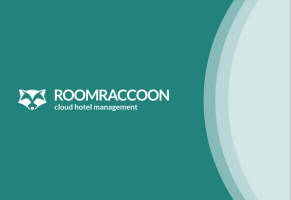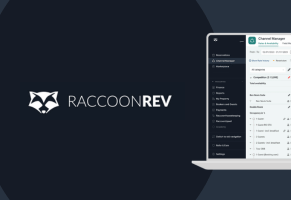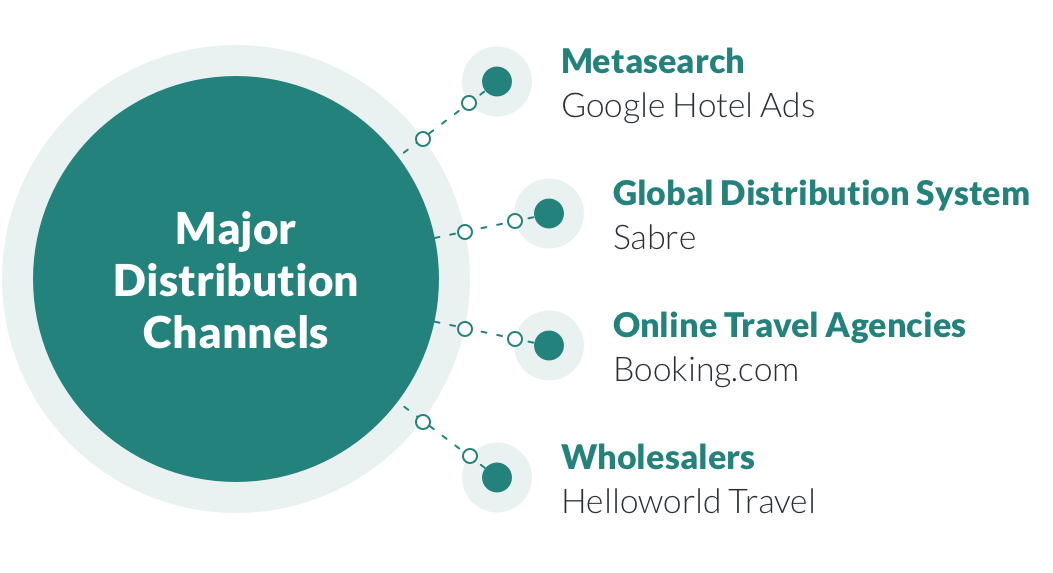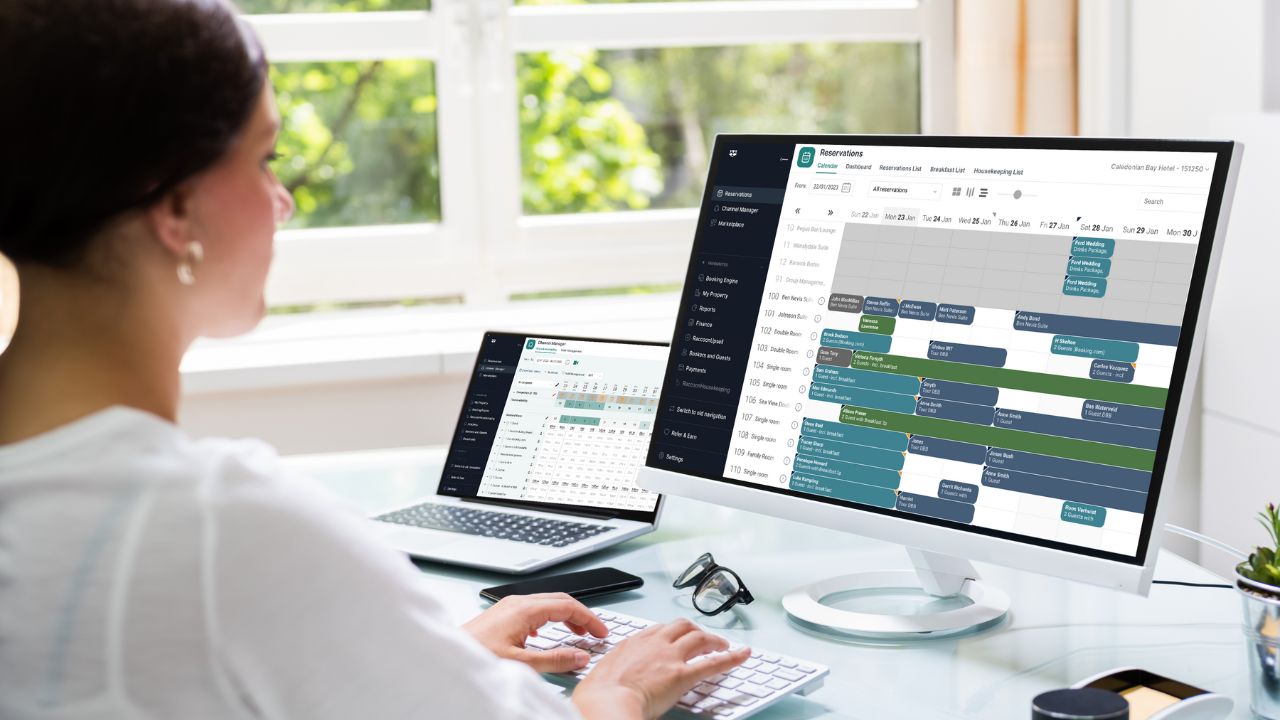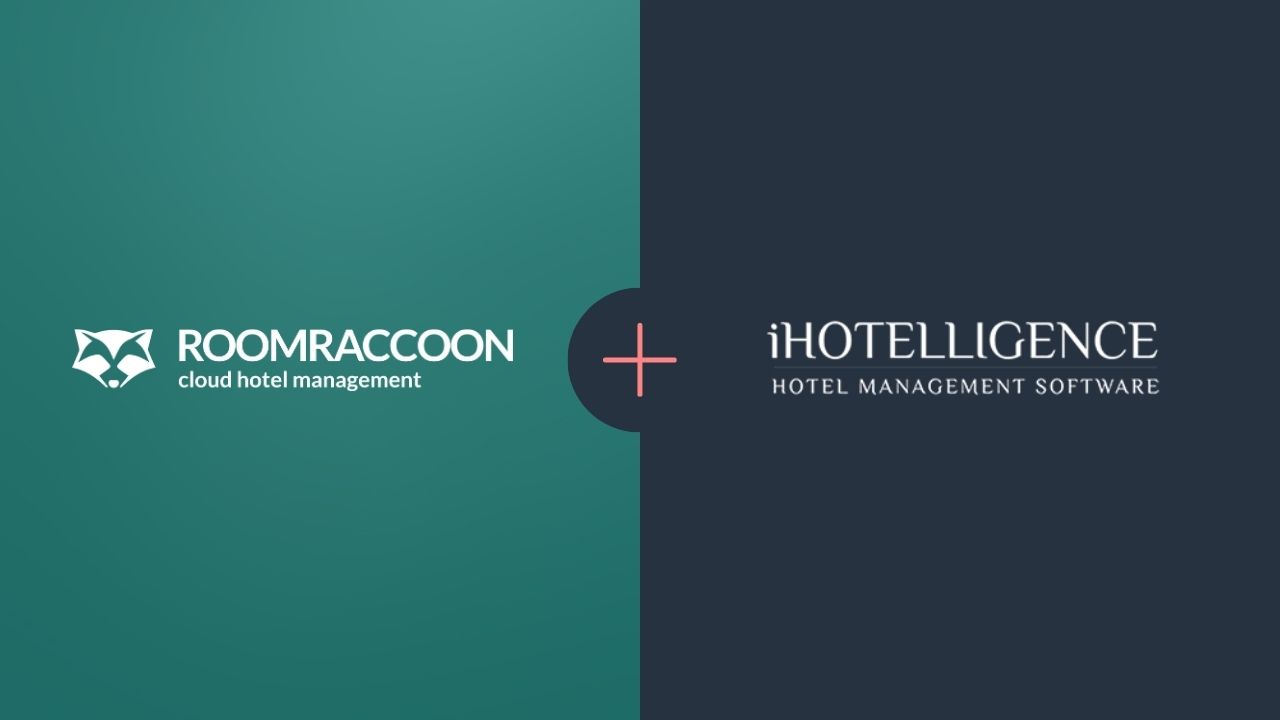CORE PRODUCT
What is a Hotel Channel Manager And How Does it Work?
August 30, 2023 Nicky. M
Share this post

A hotel channel manager is a software tool or platform that enables hoteliers and property managers to efficiently manage their online distribution across various online travel agencies (OTAs), global distribution systems (GDS), metasearch engines (Google), and other online booking platforms.
The primary purpose of a hotel channel manager for independent hotels is to streamline and automate the process of updating room availability, rates, and other important information across multiple channels in real-time.
This helps hotels optimize their revenue by ensuring accurate and up-to-date information is available to potential guests on different booking platforms.
You can do this all from one dashboard, easily updating rates and availability without juggling multiple platforms. In short, a hotel channel manager makes selling hotel rooms and special packages straightforward and efficient.
Why Should You Consider Using a Hotel Channel Manager for Your Business?
In today’s dynamic hospitality landscape, a hotel channel manager is not just a convenient tool; it’s a necessity. Efficiently managing multiple distribution channels can make or break your business.
Without a hotel channel manager it becomes challenging to handle multiple OTA listings and display your accommodations on various channels, which may result in missed booking opportunities.
As an accommodation provider, here are a few reasons why you should consider using a hotel channel manager:
- Expanded Market Reach: It’s essential because it broadens your reach. By connecting seamlessly to new booking platforms, you tap into a global audience. This means attracting diverse traveller segments and keeping your occupancy rates healthy, even during off-peak times.
- Revenue Maximization: You need a channel manager in the hotel industry because it helps you maximize revenue. With intelligent revenue management and pooled inventory, you can optimize pricing strategies. Plus, offering shared inventory without the risk of over-bookings keeps guests happy and your revenue growing.
- Data-Driven Insights: You also gain valuable insights into guest behavior, market trends, and revenue performance, allowing you to make informed decisions and improve your business strategies.
Implementing a Hotel Channel Management Strategy
As a hotelier, managing inventory and rates across multiple distribution channels can be a challenge. From online travel agencies to direct bookings through your website, you need to ensure that your inventory is up-to-date and your rates are competitive.
However, by using channel management strategies, you can maximize revenue and minimize the risk of overbookings or double bookings. Here are some tips for implementing a successful hotel channel management strategy:
1. Choose the right hotel channel manager software
There are many hotel channel manager software options available, so it’s important to choose one that fits your specific needs. Look for one that integrates with your property management system (PMS) and allows for real-time updates to your inventory and rates.
2.Optimize your distribution channels
Evaluating and optimizing your distribution channels is key to boosting your property’s visibility and revenue. Monitor metrics like Channel Mix and Revenue per Channel.
This strategic approach ensures that your property remains competitive in a dynamic market, allowing you to reach your target audience effectively and optimize revenue growth.
3. Encourage direct bookings
While online travel agencies (OTAs) provide a convenient way for guests to book hotel rooms, it’s important to encourage them to book directly with your establishment.
One way to do this is by offering more attractive rates and extra perks, like complimentary breakfast or exclusive package deals, on your own website. To ensure a smooth booking process, keep track of your booking speed and cancellation rate.
4. Seasonal and Demand-Based Pricing
Implement dynamic pricing strategies based on seasons, events, and demand fluctuations. Adjust your rates to capitalize on peak periods and optimize revenue during off-peak times, without pricing out potential guests.
5. Competitive Pricing
Keep an eye on your competitors’ pricing to remain competitive. When setting your rates, consider important factors such as location, available amenities, and market demand.
Your hotel booking channel manager should provide you with the ability to adjust prices swiftly and accurately. Rate Parity can serve as a useful guide in this regard.
6. Train your staff
Your staff plays a vital role in implementing a successful hotel channel management strategy. Train them on the software and processes so they can effectively manage your inventory and rates.
By choosing the right software, optimizing your channels, monitoring your rates, and training your staff, you can ensure that your hotel stays competitive in a crowded market.
How to Avoid Common Hotel Channel Management Mistakes
A hotel channel manager is a valuable tool for increasing revenue. However, it’s important to be aware of common mistakes that can hinder its effectiveness when used in your channel management strategy.
Here are some valuable tips to avoid common mistakes in hotel channel management:
- Accurate Inventory and Rate Management: Integrate your channel management system with your property management system. Regularly audit channel listings for consistency and accuracy.
- Automate Updates: Avoid manual rate and availability updates to save time and reduce errors. Implement real-time synchronization for seamless inventory management.
- Monitor Channel Performance Metrics: Track metrics like bookings, revenue, conversion rates, and commissions. Use data to make informed decisions and optimize your channel mix.
- Stay Flexible and Adapt: Keep up with industry trends and emerging technologies. Explore new distribution channels to stay competitive.
By following these tips, hoteliers can effectively manage their channel distribution, boost revenue, and enhance guest satisfaction.
4 Major Types of Online Distribution Channels for Hotels
Hoteliers worldwide have unlimited options these days when it comes to distribution channels. While direct bookings are the most profitable, the benefit and scope of indirect bookings or distribution channels can’t be undermined.
An OTA like Booking.com is a popular example of a distribution channel that is a chain of businesses or intermediaries through which your hotel listing passes until it reaches the final booker.
Here are important details on the top four major online distribution channels:
1. Online Travel Agents (OTAs)
An OTA is a booking platform selling travel-related products, including airline tickets, car rentals, cruises, experiences, accommodations, etc.
Benefits: OTAs generate enormous exposure for hotels, making your rooms visible to local and international travelers who may not have found you otherwise. 40% of mobile users book their stays through OTAs and typically go to the hotel’s website to look for a better deal or more information. With a booking engine in place, you may be able to convert this bonus traffic to direct bookings.
Popular OTAs: Booking.com, Expedia, and Hotels.com.
Pay Structure: OTAs are the most expensive distribution channels, with commission fees of 15%-25%.
2. Wholesalers
A wholesaler is a middleman between a travel supplier (hotel) and an OTA/travel agent. It sources the hotel room nights in bulk, packages them, negotiates rates, and then sells them to OTAs and travel agents.
Benefits: Wholesalers take properties/rooms to a wide range of markets that hoteliers cannot reach directly, like international customers. They help hoteliers maximize their occupancy, guaranteeing a certain occupancy rate.
Popular Wholesalers: AOTGroup, CN Travel, FollowMe2Africa, Helloworld Travel
Pay Structure: Negotiated rates with hotels
3. Metasearch
A metasearch engine is a search engine that searches other search engines. In other words, a metasearch engine lets travelers compare hotel room rates from various online travel agencies (OTAs) and other booking sites.
Benefits: Travellers worldwide can find room prices from multiple booking options all from one place.
Popular metasearch engines: Google Hotel Ads, Tripadvisor, Kayak, and Trivago.
Pay Structure: Metasearch engines use click-based advertising, subscription services, commissions (12%-15%), sponsored placements, listing fees, and reservation fees.
4. Global Distribution System (GDS)
A GDS is an online network for companies within the travel industry. It takes information (inventory, price, and availability) from suppliers (airlines, hotels, cruise lines, car rentals) and makes it available to distributors (travel agents and tour operators.)
Benefits: A GDS is widely used by travel agents to search and book trips for their clients. Mainly because it allows them to bundle travel deals for the same trip. For example, they can book a hotel room, flight, or a rental car from the same system. At the same time, it allows hoteliers to tap into a wide travel network, especially corporate travel.
Popular GDSs: Sabre, Travelport, and Amadeus
Pay Structure: A GDS will charge a one-time setup fee and take either a percentage compensation or a flat fee per booking.
To increase your revenue and attract more travelers, it’s essential to have a diversified stream of bookings. An optimal online distribution strategy that combines both direct and indirect bookings can help you achieve this.
Thanks to modern technology, hotels can now make quick updates to all channels, avoiding issues with overbooking and rate parity, which would have been impractical in the past.
If you’re looking to create a solid distribution strategy for your property, there are some helpful guidelines that hoteliers often turn to:
- Have a clear business objective
- Target your best guests
- Maintain competitive rates
- Understand your profitability: GOPPAR VS RevPAR
- Decide on promotions you want to run
- Adjust rates based on market conditions
- Offer extras on your direct channels (websites)
Each and every distribution strategy will look different depending on the hotel type, size, and target audience. However, executing the strategy is only possible with the help of a channel manager.
Here Are 5 Benefits of Using a Hotel Channel Manager:
We now know that a channel manager saves you time and makes life easier when updating room rates and availability across multiple platforms. But that’s not all it does.
A channel manager plays a vital role in hotel operations. It can help you increase revenue and profits during slow times, so it’s no surprise that channel managers are gaining popularity as hoteliers realize the benefits.
Here are 5 benefits of using a Hotel Channel Manager:
1. Maximizing Booking Potential
By implementing a channel manager, your hotel can greatly expand its visibility. This enables your property to reach a wider range of domestic and international travelers. This can translate into a substantial increase in room bookings – as much as 10% or more.
Importantly, the software operates in real-time, ensuring that changes made in your property management system are instantly reflected across all online platforms. This means that you can make the most of any last-minute cancellations or changes and maximize your revenue potential.
2. Leverage data to increase hotel revenue
The best hotel channel manager gives you access to some of the most valuable data to optimize your channel management strategy and increase revenue. You can use this data to determine which channels are most effective and focus on the areas that yield the best results. What kind of data can benefit your hotel business?
- Segments of travelers that visit most often (business, leisure, families)
- Visit dates (weekends, summer, festival season)
- How far in advance they’re booking
- Where they come from (both regions and channels)
- Length of stay
Preferred services and priorities (parking lot, swimming pool, meals that are included in the cost of accommodation)
3. Drive more direct bookings
Many travelers often turn to online travel agencies (OTAs) due to their user-friendliness and wide variety of options.
However, it is common for them to ultimately book their accommodations through your hotel’s website in search of better deals or to gain more information about their chosen destination. This is known as the “billboard effect” and highlights the importance of an attractive hotel website in the booking process.
4. Automate your rate updates
If you’re looking to boost your property’s revenue, you should consider using a hotel channel manager that comes equipped with yield management functionality. For instance, you can set a rule to lower rates on slower days to incentivize more bookings effortlessly.
RoomRaccoon’s hotel management system is a great example of such a platform, providing you with the tools you need to set predefined rules for rate adjustments and maximize your revenue potential.
5. Boost Your Brand Awareness with a Hotel Channel Manager
A reliable hotel channel manager can significantly increase your property’s exposure by providing two-way unrestricted access to major booking channels such as Booking.com, Airbnb, and Hotels.com, among many others.
This means travelers from all around the world, even those who haven’t heard of your property before, can easily find and book with you. More visibility often leads to more bookings and the chance to build a base of loyal, returning guests.
Ultimately, it strengthens your online presence and contributes to your property’s long-term growth and success.
Other Powerful Systems to Use With a Hotel Channel Manager
Just like bread and butter, certain combinations in hotel management are a perfect match. A complete centralized control center for your hotel includes a booking engine, property management system (PMS), and channel manager.
Whether you’re already using some of these systems or considering their implementation, integration is essential. A channel manager should seamlessly blend with other daily-use systems, such as your PMS and reservation system, ensuring the precision and smooth operation of your property’s backend.
By centralizing customer information, you’ll provide a superior guest experience and enable your staff to input information swiftly and accurately.
All of The Following Systems Are Effective When Used With a Hotel Channel Manager:
1. Property Management Software (PMS)
A Property Management System is the backbone of hotel operations, handling reservations, guest check-ins and check-outs, billing, and more.
When integrated with your channel manager, it ensures that room availability and rates are always up to date across all channels, minimizing the risk of overbookings and ensuring a seamless guest experience.
2. Booking Engine
A booking engine is a reservation processing system used by hotels and other properties to capture bookings and credit card information via their website, social media, or other marketing channels.
A booking engine replaced the tedious and dull hotel website ‘contact us’ cards.
3. Revenue Management Tool
Revenue management software ensures your rates are optimized by looking at what your competitors are doing and supply and demand. A revenue management tool works well with a hotel channel manager to ensure the rates you set are more or less on par with your competitors.
Underselling will mean you lose money, overpricing will mean you get fewer bookings, and pricing it right will mean you make a profit. With real-market data, it’s possible to predict and act accordingly.
Deciding on a Channel Manager For Your Hotel
Over the last few years, hospitality tech has really taken off. This is good news for hoteliers with plenty of channel manager software providers to choose from. The downside? There’s no such thing as a universal channel manager.
To help you decide, here are some factors to take into consideration:
- 2-Way API (Application Program Interface) Connection: Check if the channel manager offers a two-way API connection, enabling seamless communication between your PMS and booking channels.
- Rate Parity Adjustment: Look for rate parity adjustment capabilities to maintain consistent pricing across all platforms.
- Pricing: Understand the pricing structure. Some channel managers charge a fixed fee, while others take a percentage of your revenue. Make sure it fits your budget and revenue model.
- Scalability: Consider your future growth. Will the channel manager accommodate your needs as your hotel expands?
Data Insights: Make sure the channel manager provides valuable insights and reports to help you make informed decisions and enhance your hotel’s performance
Top Hotel Channel Manager Software
If you are looking for a reliable hotel channel manager software, there are various options to choose from. Here are some of the top providers in the market:
RoomRaccoon: Cloud-based channel manager hotel software that integrates with online travel agencies, offering real-time updates, centralized inventory management, and automated rate adjustments. It includes a property management system with guest communication, invoicing, and reporting features.
SiteMinder: A popular channel manager and online distribution platform for hotels, allowing them to manage availability and rates across various online channels, including OTAs. SiteMinder offers real-time updates, revenue management tools, and reporting features.
Cloudbeds: An all-in-one hotel management software with a built-in channel manager. It simplifies distribution management, automates rate and availability updates, and integrates with booking engines and OTAs. Cloudbeds also offers property management, reservation management, and guest communication tools.
Little Hotelier: A cloud-based property management and distribution system tailored for small hotels and B&Bs. It includes a channel manager for managing availability, rates, and bookings across online channels. Little Hotelier also provides reservation management, an online booking engine, and invoicing capabilities.
Sirvoy: A comprehensive cloud-based hospitality software suite, including a Property Management System, Booking Engine, and Channel Manager.
RoomRaccoon is a standout choice for hotel channel manager software due to its ease of use, seamless integration with multiple online travel agents and booking engines, as well as offering real-time updates, centralized inventory management, and automated room rate updates.
Pricing Considerations
If you operate an independent property in a budget-conscious world where all things can be purchased and separately installed, an all-in-one hotel management system like RoomRaccoon is the way to go.
This is because hotel software is only compatible with one another in certain instances. RoomRaccoon’s software solution, on the other hand, is designed to work seamlessly with your property, and pricing is much more transparent and straightforward.
You only pay for the features you need based on the number of rooms you have. This can help you save money and avoid the headaches that come with managing multiple contracts and support lines.
The Future of Hotel Channel Management: Exploring Emerging Trends and Technologies
Hotel channel manager systems in the hotel industry play a crucial role in the ever-changing hospitality industry by optimizing operations, improving guest experiences, and boosting revenue.
They oversee room rates, availability, and reservations on various online platforms. Now, let’s delve into the latest trends and technologies shaping their future.
Real-Time Automation: Modern systems offer real-time updates, managing inventory and prices automatically. This ensures accurate data, prevents overbooking, and enhances guest experiences.
Centralized Control: Integration with other hotel software systems is becoming common. Centralized dashboards streamline operations, reduce errors, and improve decision-making.
AI and Machine Learning: These technologies optimize pricing, predict demand, and personalize guest experiences. Data-driven decisions maximize revenue and cater to guest preferences.
Mobile Compatibility: Systems need to be mobile-friendly, allowing on-the-go management and instant communication with guests.
Advanced Reporting: Robust reporting and analytics provide insights into performance, channel distribution, and revenue streams, giving hotels a competitive edge.
In summary, the future of online hotel channel management hinges on real-time updates, integration, AI, mobile accessibility, and analytics. These advancements empower hotels to operate efficiently, boost revenue, and deliver exceptional guest experiences.
The Game-Changing Benefits of an All-In-One Solution
On the other hand, an all-in-one hotel management system offers many game-changing benefits. By switching to an all-in-one solution, you can streamline your operations and better manage all aspects of your hotel from a single platform.
This can help you save time and resources, increase efficiency, and enhance the overall guest experience.
Here are some key points to consider when investing in a cloud-based all-in-one HMS:
- Affordable; cost based on how many rooms you have
- One contract, one single support line
- Centralized solution
- Easy staff adaptation
- Multiple partner integrations like POS systems
- Easy cloud-based setup; “plug-and-play.”
By choosing an all-in-one HMS with a built-in channel manager, hotels can thrive in today’s competitive market and provide the best possible experience for their guests. Schedule a free demo to learn more about how RoomRacoon’s HMS can help transform your property into a smart and profitable business!
Follow us
Nicky. M
Nicky is RoomRaccoon's Senior Content Manager, combining a love for travel with a practical approach to improving hotel performance through tech and insightful tips. Join her journey where travel, hospitality, and technology meet.
Related Posts
Subscribe to our newsletter for more on the latest hospitality & RoomRaccoon updates delivered straight to your inbox!
